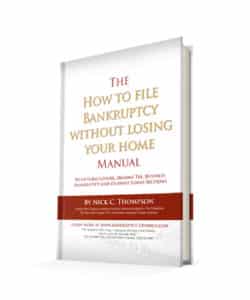An Essential Guide to Bankruptcy Auctions
Bankruptcy Auctions or a Foreclosure Sale: Which is Better?
In Kentucky, a home is sold in a foreclosure sale by the county commissioner, who must advertise the sale for two weeks before the sale. A Bankruptcy trustee typically sells a home through a real estate broker, generally at the highest bid he can get for the home. The trustee earns a fee based on how much the home sells for. It is in his interest and yours to get the best price.

If you want to buy a home at a bargain, the Commissioner sale is usually better and more accessible than buying a home for sale by a bankruptcy trustee. Because lawyers plan bankruptcy cases, it is rare to find a home for sale by a trustee in bankruptcy auctions. Bankruptcy auctions happen, but they are rare; they most often involve a car or personal property. The trustee is paid on a sliding scale. He works hard to get the highest price possible.
How Does a Person Lose Property in Bankruptcy?
People lose assets in bankruptcy when they often transfer assets for less than the fair market value to a relative or insider. These fraudulent or preferential transfers can be checked through the server and can not be undone, and the asset is returned to the trustee. Our office works hard to ensure the trustee never gets the property for sale.
However, the dishonest debtor often loses property by hiding assets or fraudulent transfers. Usually, the debtor could have kept the property by using exemptions, but because he transferred it, he lost any ability to keep it by using an exemption. You can only exempt your assets, not someone else’s property.
Bankruptcy Auctions Need Court Approval

The auction industry provides a valuable service to the court, and a buyer who bids on an auction site helps the trustee return as much as possible to the creditors. By bidding online at auctions, the buyer returns to the bankruptcy estate funds for distribution to the creditors who file claims. You can contact a trustee directly if you know about online sales that are coming up.
Can I Stop a Bankruptcy Auction by Dismissing or Converting to Chapter 13?
Debtors generally can not simply dismiss their case to stop sales. Once the trustee has the right, he will not stop sales because the buyer needs the item. He makes a commission from sales, and the debtor often causes his loss by not telling his attorney about hidden assets or fraudulent transfers.
It is hard to complain about sales when you commit fraud. The trustee will typically not object to conversion if there are no assets for the benefit of creditors. But any sign of intentional fraud will often cause the Trustee to object to dismissal or conversion. The debtor can search back his items, and the trustee will often offer a discount for cash. The trustee must file any objection to a discharge by a specific date listed on the 341 notice. But this date does not affect his ability to recover assets when fraud occurs.
Trustee Auctions
If you are curious about bidding, you can contact the auctioneer, submit questions and get an answer. You can also view the auctioneer submit question to know more about it. Bankruptcy auctions are advertised just like any government auction; anyone can bid at an auction. The prices are competitive, and you can find a bargain at these auctions, but you never win unless you follow the auctions for bargains. Many people make a living from low bids and reselling items. Believe it or not, a nuclear weapon was once accidentally listed at a government auction.
You never know what will pop up for sale, from trailers to office equipment.
The Trustee Will Auction Assets When You Have Non-Exempt Equity
You can only keep a certain amount of equity in an item. For instance, if your home is worth 228,000 and you have a 200,000-dollar mortgage, you can keep your home because there is a 28,900 dollar exemption to keep a home.
However, if the home increases in value and works 328,000, a Chapter 7 trustee will sell the home. If you think you might be at risk for this type of problem, you may want to file Chapter 13 instead. No one wants to see a sign in their yard announcing the auction service will take bids at their office.
Commissioner Auctions
A home will often be auctioned when Chapter 7 is discharged or closed. The property will go back into foreclosure if the loan is not brought current. Our office often helps homeowners work out a default with a mortgage modification or workout agreement to protect a house from foreclosure. You never want a sign in front of your home on the street announcing a sale at the commissioner’s office.
Never trust a foreclosure rescue service to save a home from an auction. You can research the foreclosure rescue scams on the CFPB website. These places often advertise legal services, but only a licensed attorney can provide legal services and appear in court for you.
Creditor Auctions
Autos will also often be repossessed and sold at auctions. The lender avoids claims that the sale was not commercially reasonable by auctioning off property at a public auction. The debtor is not responsible for the debt after a bankruptcy, and the sale does not cause a 1099 tax problem. The creditor will often file a motion for relief from stay if the services do not want to wait the full 4 to 6 months before repossessing and auto.
The Court Does Not “Sell” or “Auction” Property
The court does not auction property. The commissioner provides services to the Court so the property can be sold. It is his job to make sure the sales are conducted properly.
Trustees provide similar services to the bankruptcy court when bankruptcy auctions are needed.
Need Free Consultancy? Contact Nick Thomson!
If you are facing bankruptcy auctions and want to discuss them with an experienced attorney, visit my law firm now. I have been practicing law since 1988 and understand how to assist you in your case.
If you are located in Louisville, Kentucky, feel free to get an instant consultancy. I only take 20 cases a month, so I pay my full attention to every client. Call my office now or visit my website for more details.
 Resources for Bankruptcy
Resources for Bankruptcy
Louisville, Kentucky Bankruptcy Forms
Indiana Bankruptcy Exemptions • Video
Filing Chapter 7 & Chapter 13 Bankruptcy
How to Qualify for a Chapter 7
How to Keep Tax Refunds in Chapter 7 or 13 Bankruptcy
Retirement Benefits & 401k in bankruptcy
How to Keep Your Property When Filing Bankruptcy in Kentucky
If you are considering bankruptcy, don’t delay because timing is crucial. I am here to help you. So, contact my office right away to start the conversation. Nick C. Thompson, Bankruptcy Attorney: 502-625-0905.







